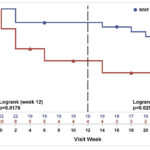ACR CONVERGENCE 2020—Attention to bone health in people at risk of developing, or who already have, osteoporosis is essential to reduce their increased risk for fragility fractures. Major risk factors for osteoporosis include being female, white, of small frame and having a family history of osteoporosis, as well as having secondary causes of osteoporosis, such…







